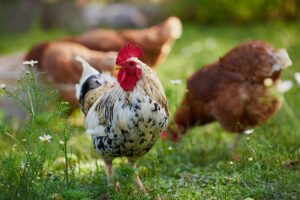Precision farming is an emerging subsystem in agriculture that aims to maximize output (i.e. crop yield) while minimizing input (i.e. fertilizer, pesticide, herbicide etc.). Predictive analytics, used in precision farming, help the farmer to make better decisions by collecting real time data on soil, crop maturity, air quality and weather, as well as equipment and labour costs and availability. Precision farming or agriculture is a farm management technique that employs Information Technology (IT) and Artificial Intelligence (AI) to ensure that soil and crops obtain the nutrients they required for finest production and quality. Its key goals are to ensure profitability, long-term viability and environmental stewardship. [1] One promising approach of P.F., could be Hydroponics, where introduction plant growth-promoting rhizobacteria and the use of multi-element sensors and interpretation algorithms based on machine learning logic to monitor the availability of nutrients/elements in the hydroponic solutions and to modify its composition in real-time, are feasible. The lessons learned following this soilless growth system mechanics, can later be translated to more complex soil systems. [2]



